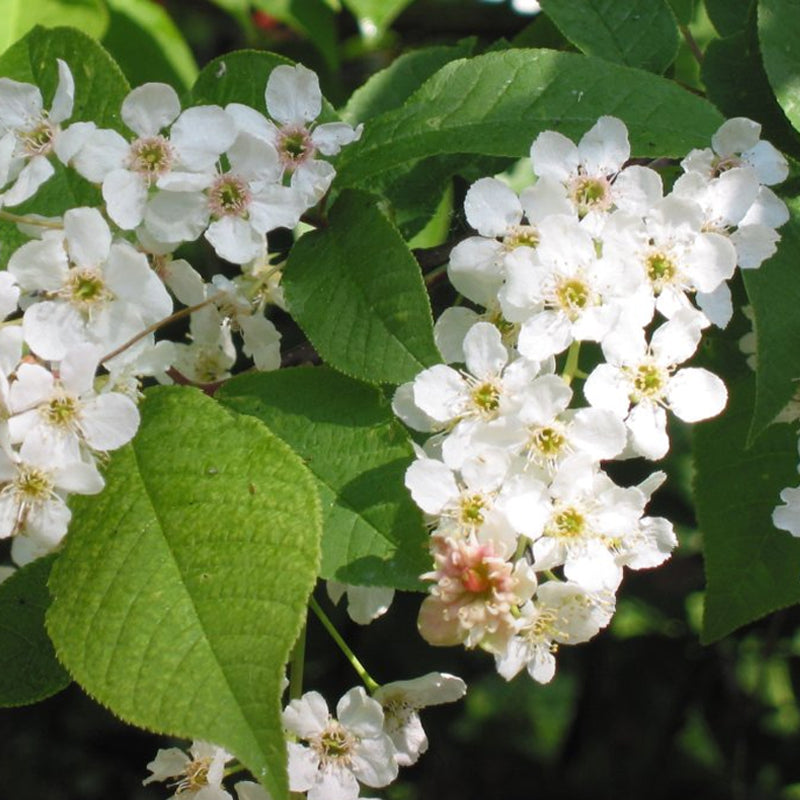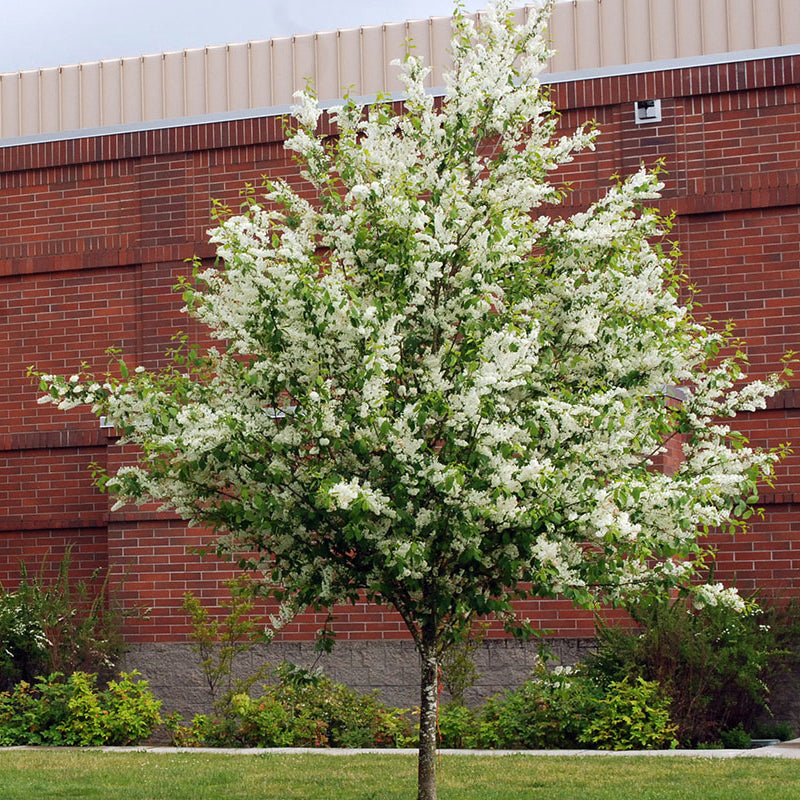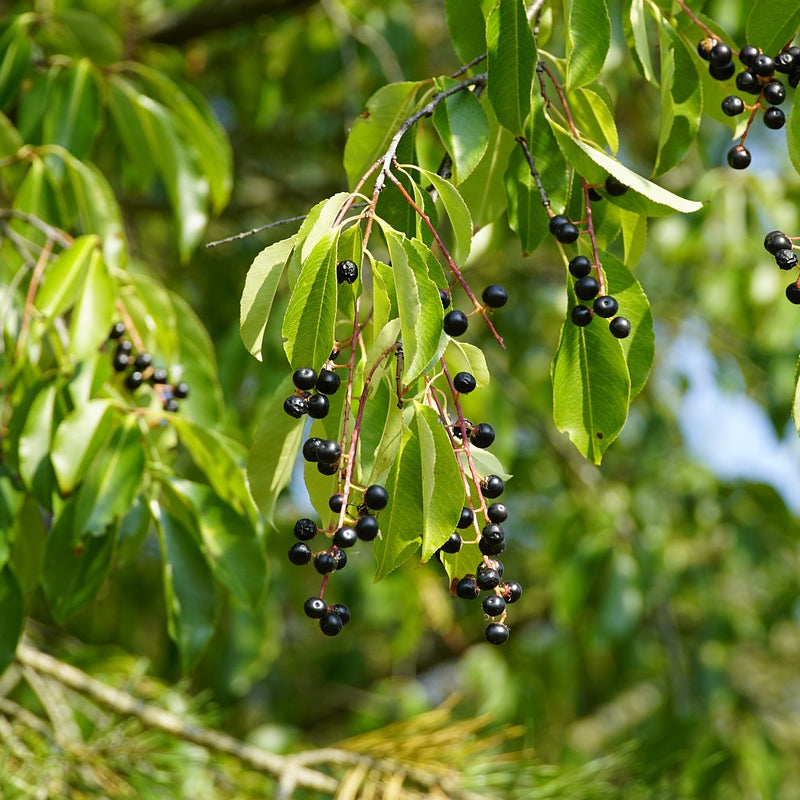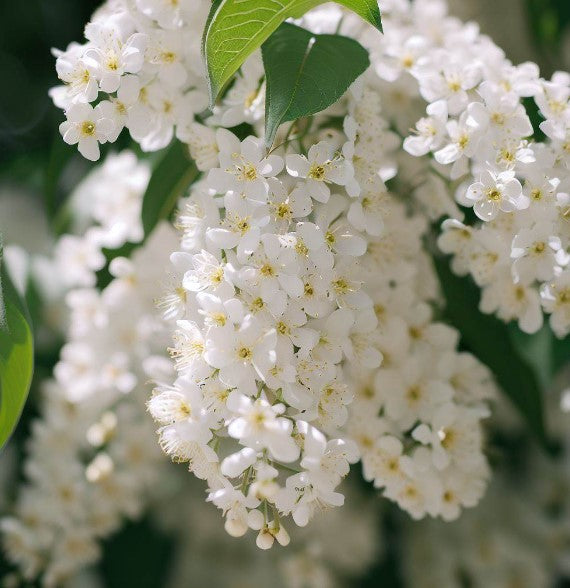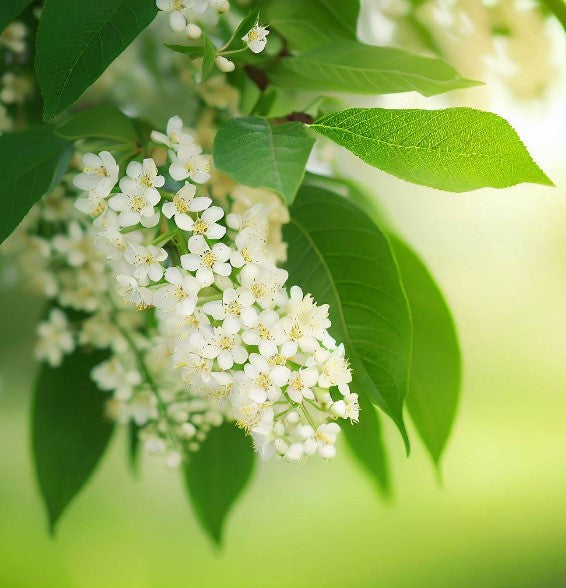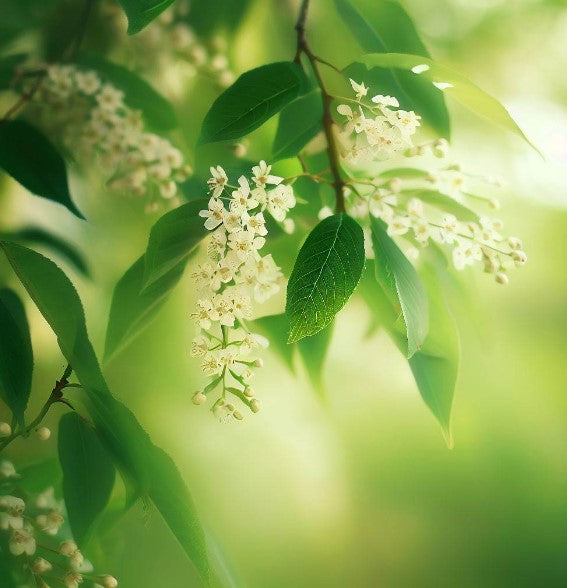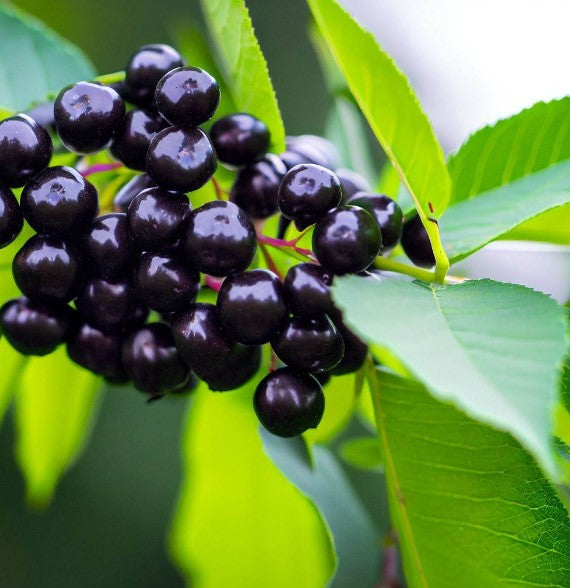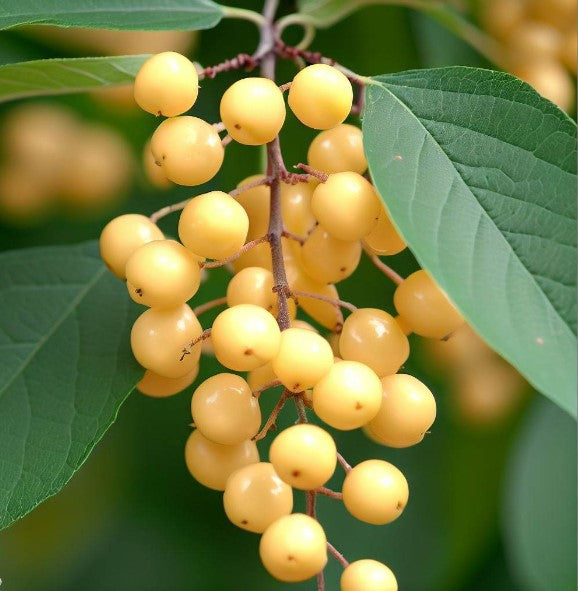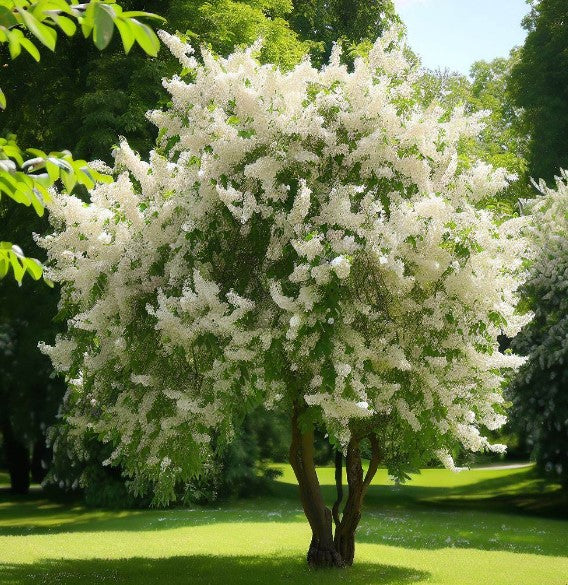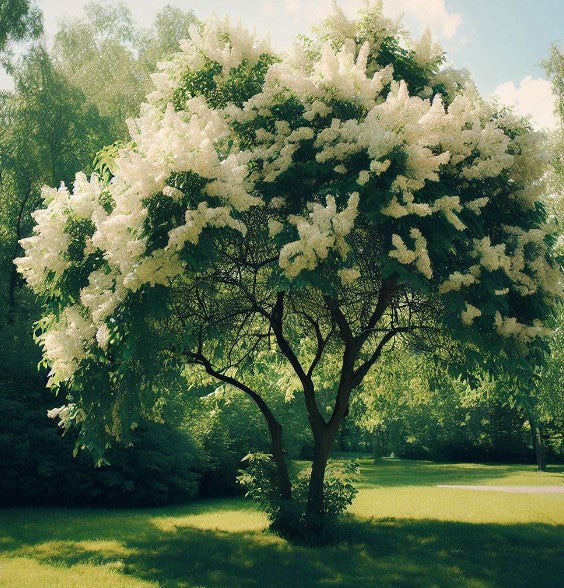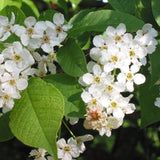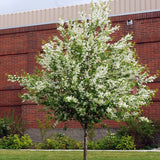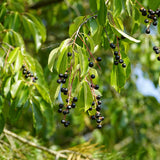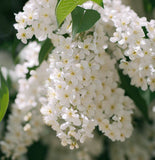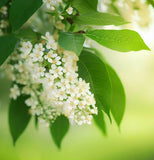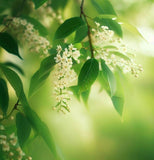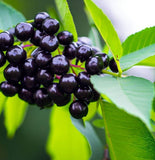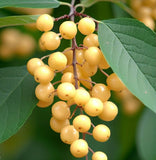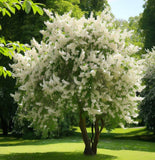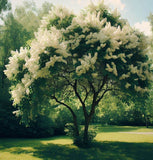Prunus padus (European Bird Cherry)
Prunus padus (European Bird Cherry) is a deciduous tree native to Europe and parts of Asia. It belongs to the Rosaceae family and is valued for its ornamental qualities and its ability to attract birds. European Bird Cherry typically grows to a height of 8 to 15 meters (26 to 49 feet) with a spreading, rounded crown. It has an upright growth habit with ascending branches.
Leaves: The leaves of Prunus padus are dark green, alternate, and oval-shaped with serrated margins. They turn yellow in the fall before dropping from the tree.
Flowers: European Bird Cherry produces clusters of small, fragrant white flowers in late spring to early summer. The flowers are held in erect, cylindrical racemes and are pollinated by insects. They give rise to small, pea-sized fruits.
Fruit: The fruit of European Bird Cherry is a small, round drupe that starts off green and turns black when ripe. The fruits are attractive to birds and may be consumed by them, hence the common name "Bird Cherry." However, the fruits are not typically consumed by humans due to their bitter taste.
Bark and Wood: The bark of European Bird Cherry is smooth and gray when young but becomes darker and develops shallow fissures with age. The wood is relatively hard but not widely used commercially.
Ecological Importance: European Bird Cherry plays a role in supporting pollinators, such as bees, and provides habitat and food sources for birds and other wildlife. It is often found in woodland areas, hedgerows, and along riverbanks.
Botanical Name : Prunus padus
Common Name : European Bird Cherry
Height : 40 ft
Spread : 15- 20 ft
Germination Info : Seed requires 180 days cold moist stratification
Hardiness zone : 4-8
Average seed per ounce : Approx. 594

